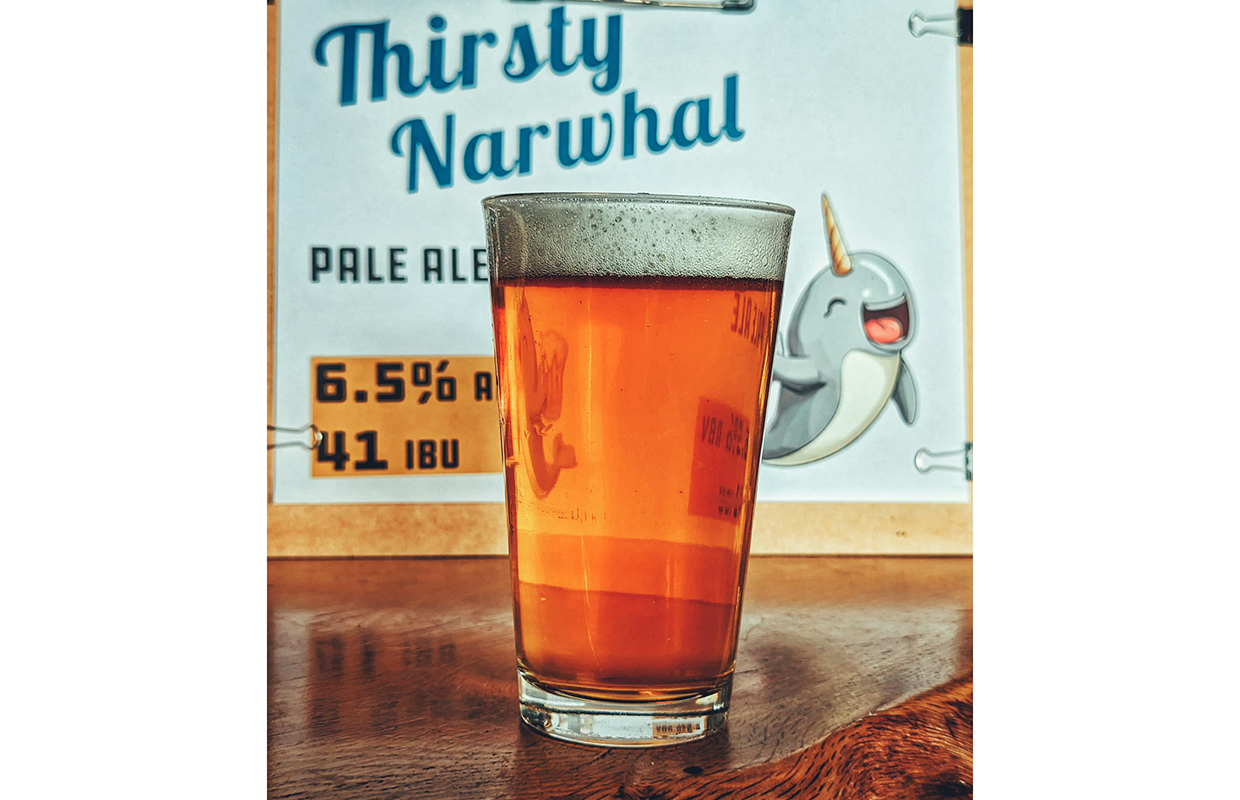
With the emergence of Artificial Intelligence (AI), many people have flocked to apps like ChatGPT to see what the fuss is all about and have been having fun experimenting with the tool. But can it make beer?
Findlay Brewing Company took ChatGPT for a ride to see if it could create a beer for the Ohio brewery. Aaron Osborne told Brewer he is fascinated with what the app can do and started to see if it could make a beer for him.
“I’ve been following (AI development) for a long time, and I don’t even use it that much,” said the Ohio brewery’s co-founder. “I was kind of playing with it and telling (our taproom manager) Sarah I’m gonna make an AI beer.
“I wasn’t really gonna make too much of a big deal about it. But she said at least make sure people know that we’re doing this.”
Along with creating the recipe (a Pale Ale with Centennial and Cascade additions), Osborne used the app to create a beer name (Thirsty Narwhal) and an image to have on the taproom wall. They also used ChatGPT to write a press release and social media posts.
READ MORE: Findlay Brewing Partners with ChatGPT to Create One-of-a-kind Beer for American Craft Beer Week
“I was kind of hoping, in a small way, it was going to really give me something absurd,” he said. “Like an absurd combination of hops or something I just knew wasn’t going to work. That’s kind of that kind of was looking for that … something really weird like an IPA Porter.
“I almost want to try it again and say give me something weird. Something that’s never been brewed before, just to see what it does.”
Instead, with very few prompts, Osborne was given a five-gallon homebrew recipe for a Wit. he decided to add some more details when asking in the prompt and instead got the Pale Ale given to him.
I just said, ‘This looks great, but what are your thoughts on dry hopping?’ It said dry hopping was great,” he explained, saying Citra was given as a dry hop. “I think that made it better. If it would have said no, I don’t recommend a dry hop, I wouldn’t have added it.”
The Thirsty Narwhal “pretty much meets my expectations,” Osborne said.
That said, could a brewery make all of its beers this way? Probably, Osborne said. But it would be very boring.
“Brewing is your process, more so than anything else,” he said. “You know a brewery because of the way they do it. And that’s the same thing for us. It can almost spit out any recipe you want, it’s still gonna taste like a Findlay Brewing beer because of the way we make beer.”
Other limitations of this creation were the AI would only give him five-gallon recipes and he had to use prompts to get it to scale up to a three-barrel batch.
“It didn’t understand how to scale it, that surprised me right away,” Osborne said. “The pounds for malt were way off. This was supposed to be a 6% beer and I can’t even fit these malts in the tank. I can’t even mash this. I wrote, ‘I think you scaled it wrong. Can you try that again?’ And then suddenly, it’s, 2,000 pounds of Brewers malt … so then I had to take the approach of just asking it to give me percentages. That’s how I had to break it down.”
No one wants a computer to make the beer for them,” Osborne concluded. “It can be done, I’m sure. A big company like Miller or Coors … whoever … if they have a fully automated brewhouse, they could probably plug in ChatGPT to just knock out new beer recipes for them all day, every day.
“Do people actually want that? Probably not. But all the other aspects of AI are fascinating, to me. I can plug in a recipe we have and ask what are some other variations on this? There’s been a lot of people using it to help them formulate recipes, tweak their styles, or create brew log sheets, and all sorts of things on the backend. It’s kind of handy.”
But for recipe formulation, the AI has a ways to go, he figures.
“Brewing beer is subjective,” Osborne said. “I might not like a certain hop and it could be a popular hop. So then my beers become subjective towards what I like but something like this AI might not know that or it might be basing it on reviews and it may never recommend a newer hop that’s super popular because it doesn’t know it.
“It’s never going to recommend something that is either going to be more cutting edge or using newer ingredients. The first recipe spits out Cascade and Centennial. Great hops, obviously. People make some of the best beers in the world with Cascade and Centennial but that’s what it recommended.”
That doesn’t mean Findlay is done using AI. Osborne says he plans to do it again on a small-batch scale, but the next time he will ask for complete instructions on mashing in, time, and temperature, just to see what the tool can do.
Now, for fun, we plugged in a transcription of the complete interview with Osborne to ChatGPT and asked it to write this story. Here’s what it came up with.
Headline: “Brewing Innovation: Findlay Brewing Creates Chat GPT-Inspired Beer Using AI”
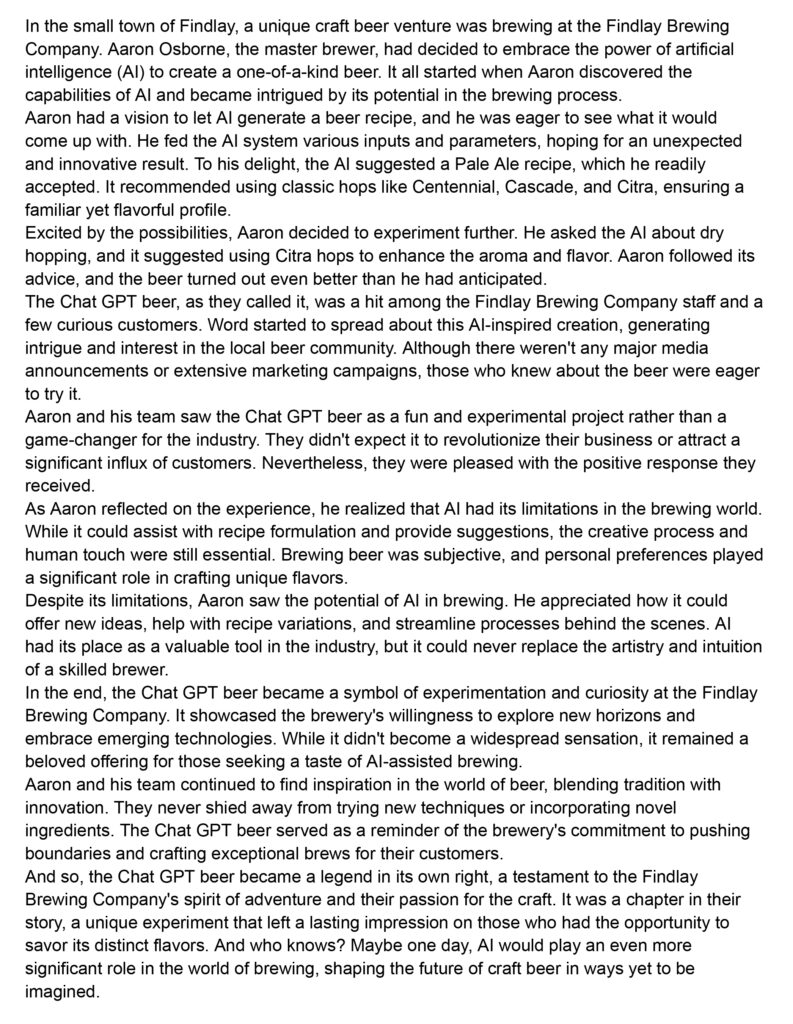

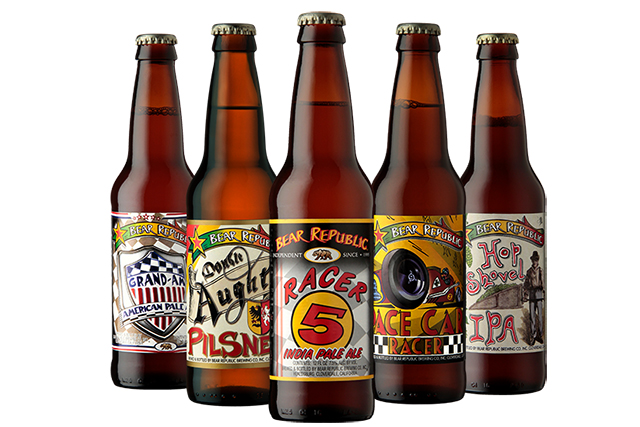
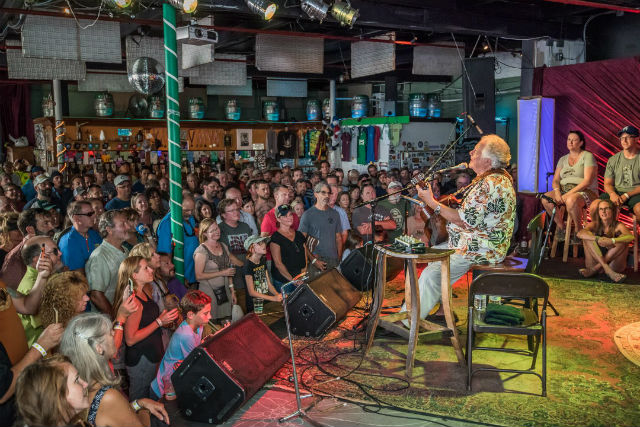
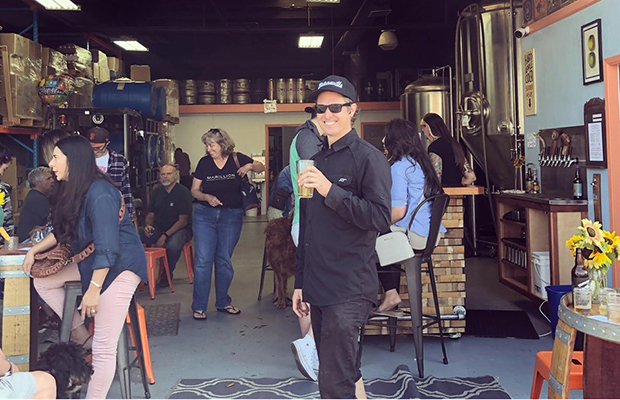
Be the first to comment